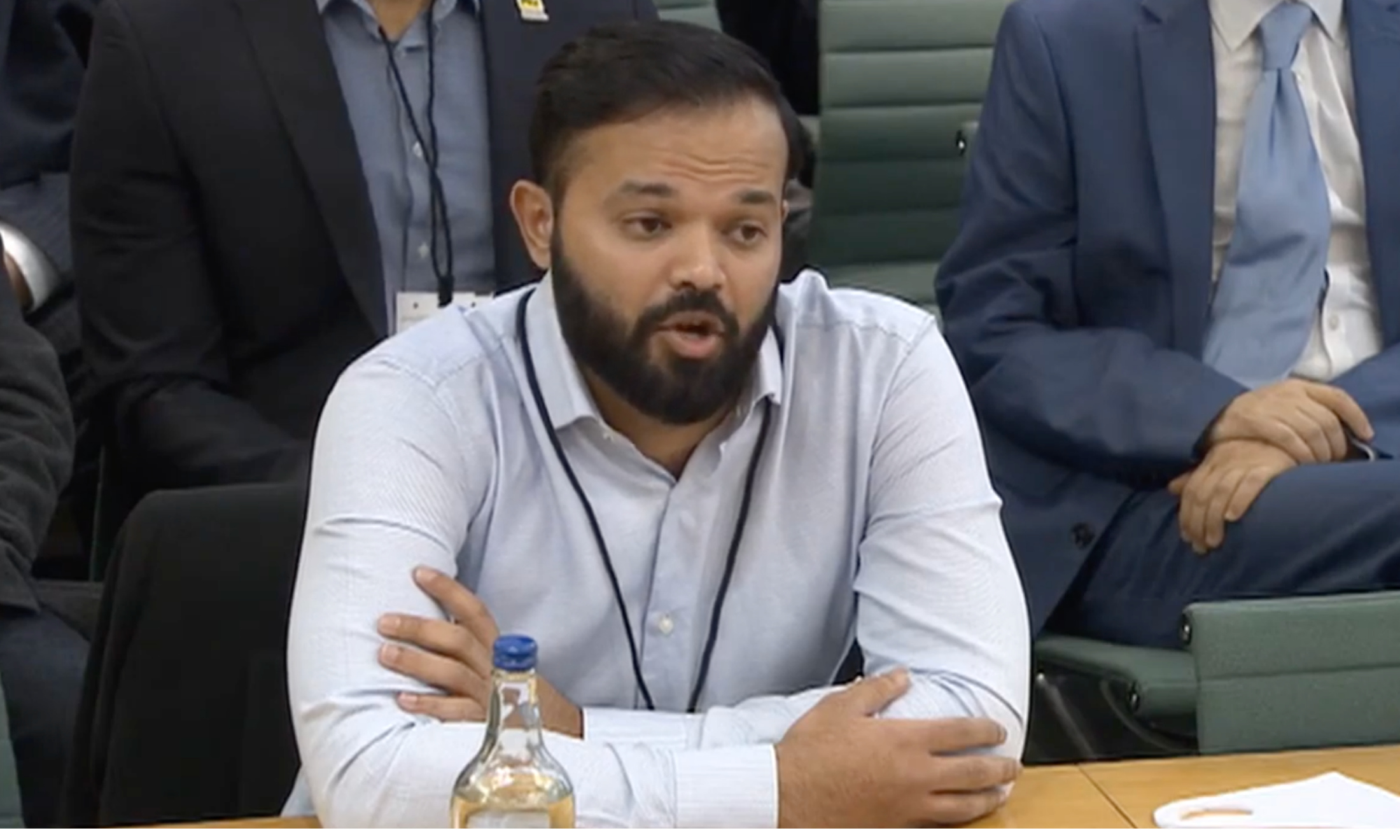
DCMS
When will people stop being surprised that institutional racism exists?
Azeem Rafiq’s story isn’t just about holding individuals to account. It’s about the culture and institutions that have enabled racism for so long.
Shahed Ezaydi
19 Nov 2021
It doesn’t seem like it takes too long in this country before yet another institution is embroiled in allegations of racism, and that’s exactly what happened this week. For weeks, we’ve heard bits and pieces surrounding the widespread racism – and subsequent botched cover-up – in the world of cricket, specifically in relation to Yorkshire County Cricket Club. Azeem Rafiq, a former professional cricket player at the Yorkshire club, appeared before a parliamentary select committee this week, revealing further harrowing details of the racist and Islamophobic abuse and bullying he faced during his career.
Azeem described having racist derogatory terms constantly used against him by teammates, whilst those in management stood by and did nothing. He told the committee that players of Asian heritage were made to sit together in changing rooms, being told “you lot sit over there near the toilets”. He also recounted a particularly horrific incident where he was pinned down and had red wine poured down his throat at his local cricket club aged 15.
It would be easy to confine these experiences of discrimination and bullying to just one person or even a single industry, but it’s so much bigger than that. Azeem himself told the committee numerous times that it wasn’t about individuals but rather the fact that the club, and cricket in general, was institutionally racist.
“It would be easy to confine these experiences of discrimination and bullying to just one person or even a single industry, but it’s so much bigger than that”
A number of board members at Yorkshire County Cricket Club, including the chief executive Mark Arthur and club chairman Roger Hutton, have resigned in the wake of these allegations. Hutton also appeared before the select committee this week where he accepted that the club was institutionally racist.
After sharing his experiences with the committee, Azeem himself apologised for racist and antisemitic comments he made in 2011 that resurfaced this week. This of course doesn’t take away from his own experiences of racism, but shows that prejudice is present in many communities.
Azeem’s case isn’t just about holding individuals in power to account (as much as that’s important). The resignation of board members is only the first step in addressing the problem at the Yorkshire club. And if these resignations simply mean the same people coming in to replace them, then the problem remains. Nothing changes by simply blaming and replacing individuals at the top with more of the same.
Isolating and individualising racism to specific people, fields, or industries only creates further barriers to actually tackling the problem. We all end up discussing that same person or industry for a few weeks, with the mention of institutional racism as a footnote, and then the issue is shelved until the next high-profile allegation of racism surfaces.
“The commentary and reactions of shock betray just how much the majority of British society refuses to see or understand institutional racism for what it is”
That isn’t to say that Azeem’s experiences aren’t horrific. But the commentary and reactions of shock betray just how much the majority of British society refuses to see or understand institutional racism for what it is: widespread, pervasive, and – to state the obvious – endemic on an institutional level. It shouldn’t be surprising when yet another institution is exposed as racist.
As well as this, when the focus is entirely on a specific person, the public becomes desensitised to the issue of racism and compartmentalises it as an issue specific to that person or field. People are able to step back from thinking about their own internalised racism as they don’t believe it applies to them and their own circumstances. But it then begs the question, who are the people turning a blind eye to discrimination in the workplace? Who are the people who ‘can’t remember’ hearing a racist term being used? Who are the people who stood by and did nothing?
The public is able to step back from stories like Azeem’s because they may not see themselves in it. But racism isn’t just the few individuals who make the remarks or hold the bottle of wine. It’s the wider network of people, and the culture, which has allowed for such behaviour to carry on without consequence for so long. From hiring practices and a lack of opportunities to toxic workplace cultures, institutional racism exists in every institution.
The majority of Black and brown people will recognise their own experiences in Azeem’s. I know I do. But it shouldn’t be left to people of colour to shoulder the responsibility of calling out and tackling institutional racism. It’s only when people – especially those without the lived experiences of racism – begin to properly confront their own prejudices and that of the systems around them, that we can actually tackle the deep-rooted racism that very much exists in this country.

Britain’s policing was built on racism. Abolition is unavoidable

How Pakistan’s Khwaja Sira and transgender communities are fearing and fighting for their futures

Their anti-rape performance went viral globally. Now what?


